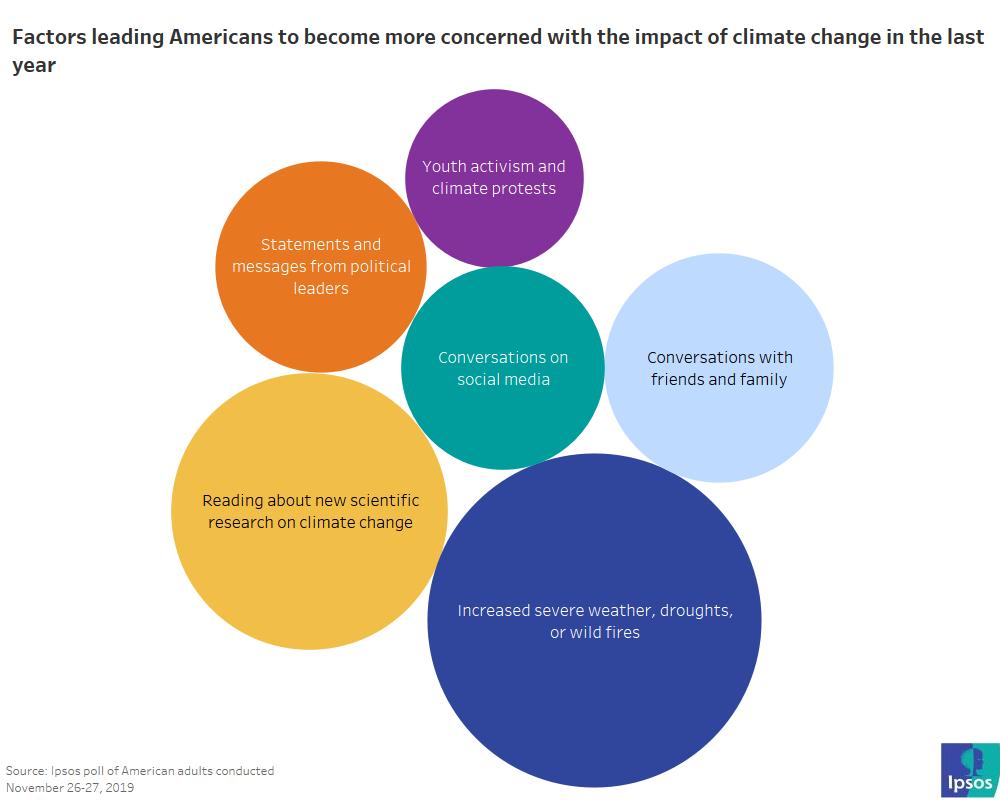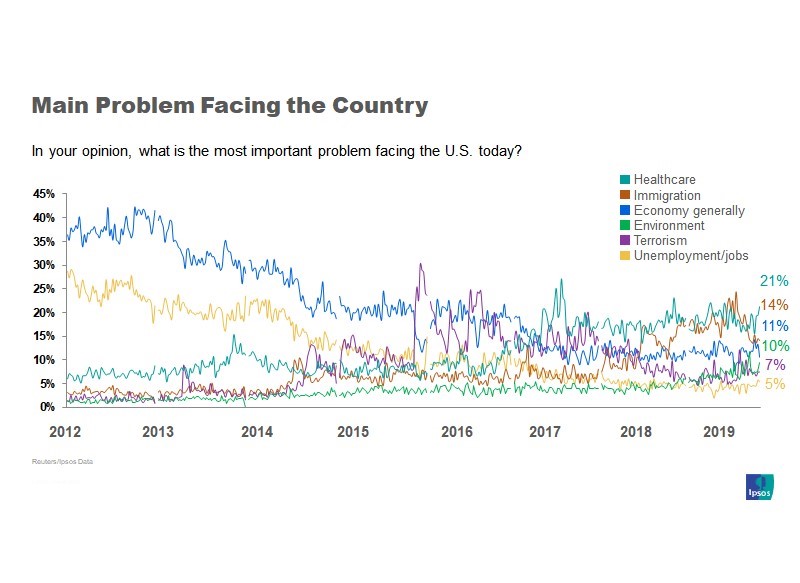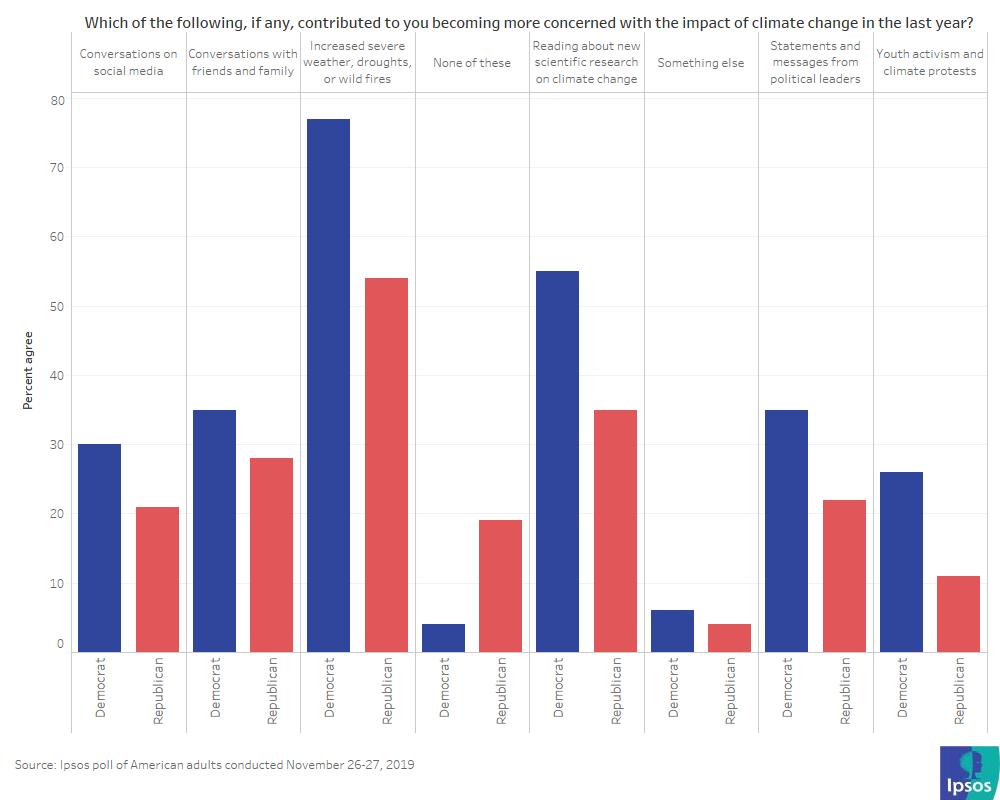Americans Are Beginning to Care More About Climate Change. Why?

After being regarded as a secondary issue by a distracted public for years, Ipsos/Reuters data shows that a growing number of Americans list the environment as the main problem facing the country.
Though they might not list the environment as the number one issue facing the country, the majority of Americans believe that climate change is happening, and with good reason. Faced with near constant headlines about record-setting temperatures, destructive wildfires, and 100-year floods or other events, change would appear to be undeniable.

We can expect further consequences of climate change: in 2018, the United Nations Intergovernmental Panel on Climate Change warned that world temperatures would rise to crisis levels if humanity fails to make drastic changes in how we consume and utilize resources. Many other reports arrive at a similar conclusion.
Still, scientists have been warning the public about the looming threat of climate change for decades. So what is causing the American public to take note now? Is all the media hullabaloo about celebrity activism and world-wide climate strikes making a dent in public opinion?
The answer is far simpler, as an Ipsos poll reveals.
Extreme weather events are the most persuasive argument for climate change, according to 70% of Americans, followed by reading about new scientific research (48%), and conversations with friends and family (33%). In other words, direct, tangible experiences are the most compelling evidence for rising global temperatures.
The Jane Fondas and Greta Thunbergs of the world have also been making headlines for their efforts to prompt governmental action on climate change, along with the youth activists striking in protest of the hotter planet they are set to inherit. While youth activism and climate protests have influenced public opinion, their impact is more modest than that of extreme weather. Only 20% of Americans said that celebrity activism contributed to their growing concern for climate change in the last year, a 50-point gap when compared to the role extreme weather plays in moving people’s opinion.
Americans are concerned about the impact of climate change on their own welfare, and slightly more concerned for the next generation’s prospects. Democrats are more likely to be worried about climate change than Republicans, consistent with other reports indicating that Republicans are not wholly convinced that climate change is a major threat.
Breaking down the findings along party lines, the data shows that 85% of Democrats say that they are very or somewhat concerned about the impact of climate change on their futures, while 91% say that they are concerned about its potential repercussions for the next generation. In contrast, 55% of Republicans say they have concerns about how climate change might impact them, while 61% are concerned for the next generation.

Extreme weather, of course, will not wait for partisan disagreements to resolve themselves before carrying on. A recent Ipsos poll designed to support the publication Why We’re Wrong About Nearly Everything shows that misperceptions abound about the extent of our environment- and climate change-related problems among Americans.
As floods, fires, droughts and other events continue to impact communities across the nation, it remains to be seen whether they will convince more Americans of the reality of climate change, and the need for more concerted efforts to combat it.


